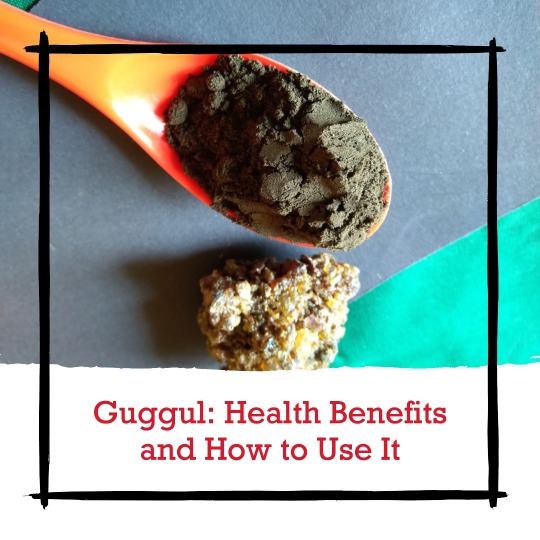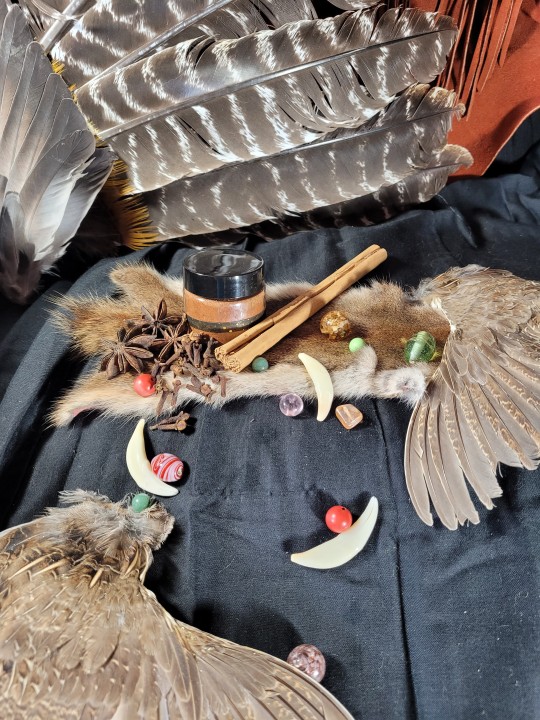#guggul
Text

PINMIN 9G Multivitamin and Multiminerals Soft gel Capsules is an excellent product from house of PINAMED DRUGS. It is a nutritional supplement that restores the level of vitamins and minerals in your body and helps to improve your overall health. It helps in fighting fatigue and improving your wellbeing. Ginseng, Garlic, Grape Seed, Green Tea, Ginkgo Biloba, Guggul, Green Coffee Bean, Giloy & Glycyrrhiza Glabra are 9 (G) that Promotes Healthy Aging, Reduces Anxiety and Stress, Boosts Your Cardiovascular Health, Covers Your Nutritional Bases, Supports Your Immune System, Keeps Body in Good Working Order, Improves Your Eyesight, Keeps Your Bones & Joints Strong & Enhances energy levels and Eliminates Impurities and Toxins. One can take this supplement daily and experience overall health benefits with the advise of Health Expert.
#pinamed#pinameddrugs#pinmin#pinmin9g#9G#multivitamins#multiminerals#antioxidant#softgel#SoftgelCapsule#overallhealth#ginseng#garlic#GRAPESEEDEXTRACT#greentea#ginkgobiloba#guggul#greencoffee#giloy#Glycyrrhiza#antiaging#immunesystem#nutraceuticals#ambala#PCDfranchisebusiness#PCDPharmaFranchise#PCD#PCDPharma#PharmaFranchise
#pinamed#pinameddrugs#pinmin#pinmin9g#9G#multivitamins#multiminerals#antioxidant#softgel#SoftgelCapsule#overallhealth#ginseng#garlic#GRAPESEEDEXTRACT#greentea#ginkgobiloba#guggul#greencoffee#giloy#Glycyrrhiza#antiaging#immunesystem#nutraceuticals#ambala#PCDfranchisebusiness#PCDPharmaFranchise#PCD#PCDPharma#PharmaFranchise
1 note
·
View note
Text
TREE BEING USED IN AYURVEDIC MEDICINE FOR CENTURIES .
GUGGUL,GUGAL OR GUGGULAM(#dhoop)
Used in #perfumes , #incense and used as #dhoop .
#ayurvedic #text #dating #back #to #600bc #recommend #it #for #treating #artherosclerosis
#mukul_myrrh #tree , is a #flowering #plant t in the #family #burseraceae , which produces a #fragrant #resin called #gugal, #guggul or #gugulam , that is used in #incense and #vedic #medicine (or #ayurveda ).
Best #quality #guggilam as small rock's like resin grade-1 From Northern Part Of India Available.
Hit a message to know price and to buy ..😊
instagram
#GUGGUL#gugul#gugulam#dhoop#perfumes#scent#startup#medicine#marketing#sambrani#devotional#temple#ritual things#god#Instagram
0 notes
Text
Guggul: Health Benefits and How to Use It
Guggul: Health Benefits and How to Use It
Guggul is a traditional Ayurvedic herb that has been used for centuries to treat a variety of health conditions. It is known for its anti-inflammatory and cholesterol-lowering properties.
Guggul is derived from the resin of the Commiphora mukul tree, which is native to India and Pakistan. The resin is extracted from the tree and then dried and ground into…

View On WordPress
#anti-inflammatory#ayurvedic herb#cholesterol-lowering#guggul#guggul benefits#guggul for acne#guggul for arthritis#guggul for high cholesterol#guggul for hypothyroidism#guggul for men#guggul for weight loss#guggul for women#guggul side effects#guggul supplement#health benefits of guggul#herbal supplement#how does guggul work?#how to use guggul#is guggul safe?#natural remedy#traditional medicine#what is guggul?#where to buy guggul
0 notes
Text
Thyroid formulas
hyperthyroidism: red clover cleanser
hypothyroidism: thyroid lift, guggul cholesterol compound
#thyroid#hyperthyroidism#hypothyroidism#thyroidism#red-clover#guggul#thyroid-lift#cholesterol-compound#cholesterol
1 note
·
View note
Text
#guggul extract from india#guggul extract manufacturer#guggul extract supplier#commiphora mukul extract
0 notes
Text
0 notes
Text
0 notes
Text
Dhootapapeshwar Yogaraj Guggul Uses is an ayurvedic medicine that is primarily used for the treatment of Rheumatoid Arthritis, Muscle Weakness, and Arthritis. The key ingredients of Dhootapapeshwar Yogaraj Guggul are Amla, Guggulu, Cumin, Black Pepper, Long Pepper, Ginger, Baheda, Hing. The properties of these have been shared below. The correct dosage of Dhootapapeshwar Yogaraj Guggul depends on the patient's age, gender, and medical history.
1 note
·
View note
Text
Must-know Reasons to choose cow dung panchagavya dhoop
Cow dung sambrani cup is a type of incense made from cow dung mixed with herbs and other natural ingredients. It is often used in Hindu religious ceremonies and rituals, as well as in Ayurvedic medicine. The sambrani cup is made by combining cow dung with herbs and other natural ingredients, and then shaping the mixture into a small cone or cup. It is then dried and burned, releasing a fragrant smoke. Some people believe that the smoke from cow dung sambrani cup has purifying and energizing properties, and can help to create a peaceful and spiritual atmosphere. Cow dung sambrani cups are typically made in small quantities and are often handmade. They may be difficult to find in stores, and may be more commonly available online or through specialty retailers.
Cow dung panchagavya dhoop is a term that refers to a mixture of five products that are derived from cows, including cow dung, cow urine, milk, ghee, and curd. Panchagavya dhoop is a type of incense that is made by combining cow dung with these other cow-derived products, as well as herbs and other natural ingredients. It is often used in Hindu religious ceremonies and rituals, as well as in Ayurvedic medicine. Some people believe that panchagavya dhoop has a number of benefits, including:

Cow Dung Panchagavya Dhoop
Purifying the air: The smoke from panchagavya dhoop is believed to purify the air and remove negative energies!
Creating a peaceful atmosphere: The fragrant smoke from panchagavya dhoop is thought to create a peaceful and relaxing atmosphere!
Boosting energy: Some people believe that the smoke from panchagavya dhoop can help to energize and revitalize the body.
Improving skin health: Panchagavya dhoop is believed to have nourishing and rejuvenating properties that can benefit the skin.
Reducing stress: The fragrant smoke from panchagavya dhoop is thought to have a calming effect and may help to reduce stress and anxiety.
Improving digestion: Panchagavya dhoop is believed to have digestive properties and may help to improve digestion.
Boosting immunity: Panchagavya dhoop is thought to have immune-boosting properties and may help to support the immune system.
Reducing inflammation: Panchagavya dhoop is believed to have anti-inflammatory properties and may help to reduce inflammation in the body.
It is worth noting that the benefits of panchagavya dhoop are largely anecdotal and have not been extensively studied or proven through scientific research.
How to choose the best cow dung sambrani cup?
There are a few factors to consider when choosing a cow dung sambrani cup:
Quality of ingredients: Look for a cow dung sambrani cup that is made with high-quality, natural ingredients. It is also a good idea to check the list of ingredients to ensure that there are no artificial fragrances or other potentially harmful additives.
Sustainability: Consider choosing a cow dung sambrani cup that is made by a company that follows sustainable practices, such as using organic ingredients and eco-friendly packaging.
Brand reputation: Look for a cow dung sambrani cup from a brand that has a good reputation for producing high-quality products. You can check online reviews or ask friends or family members for recommendations.
Price: Determine your budget and look for a cow dung sambrani cup that fits within that range. It is important to note that you may have to pay more for a higher-quality product.
Packaging: Consider the packaging of the cow dung sambrani cup. Some options may come in a reusable container, which can be more environmentally friendly.
It is also a good idea to read the product descriptions and labels carefully to ensure that you are getting a product that meets your needs and preferences.
1 note
·
View note
Text


Ayurvedic Products and health supplements
Ayurvedic supplements often include herbal formulations tailored to specific health concerns, such as Ashwagandha for stress management, Triphala for digestive health or Guggul for cholesterol regulation. These natural products are designed to complement a balanced diet, enhance immunity and support the body's innate healing mechanisms, all within the framework of Ayurvedic wisdom.
#Best ayurvedic products#ayurvedic medicine online#ayurvedic medicine online store#buy ayurvedic medicines online#Best ayurvedic medicine online store#ayurvedic medicine online shopping#ayurvedic medicine store#ayurvedic medicine purchase online
2 notes
·
View notes
Text

This loose powder incense was specially formulated for Loki, Norse god of change, chaos, trickery and misfits. This spicy-woodsy blend has notes of cinnamon, storax, and guggul, for a burst of sweetness under the spice.
Available here.
7 notes
·
View notes
Text
Best Acne Doctor in Yamunanagar
Acne, a common skin condition, affects millions of individuals worldwide. It not only impacts physical appearance but also takes a toll on self-esteem and confidence. In this post, we will discuss causes and symptoms of acne, as well as explore Ayurvedic and Homeopathic treatment options. We are proud to introduce Dr. Garg - Umeedhom (Scientific Clinic), who specializes in providing holistic solutions for managing acne.
Understanding Acne:
Acne is a skin disorder that occurs when hair follicles become clogged with oil, dead skin cells, and bacteria. It predominantly affects areas with a high concentration of oil glands, such as the face, chest, and back. While it is most commonly associated with adolescence, acne can persist into adulthood, causing discomfort and emotional distress.
Causes of Acne:
Several factors contribute to the development of acne:
Excess Sebum Production: Overactive oil glands produce more sebum, which can clog hair follicles and lead to acne.
Clogged Pores: The combination of dead skin cells and excess oil can create blockages in hair follicles, resulting in blackheads, whiteheads, and pimples.
Bacterial Infection: The bacterium Propionibacterium acnes can thrive in clogged hair follicles, causing inflammation and breakouts.
Hormonal Changes: Fluctuations in hormones, particularly during puberty, menstruation, pregnancy, and menopause, can trigger acne.
Diet and Lifestyle: Certain diets high in dairy, refined sugars, and processed foods, as well as high-stress levels, can exacerbate acne.
Symptoms of Acne:
The symptoms of acne can vary in severity:
Blackheads: Small, dark bumps that form when hair follicles become clogged and the top remains open.
Whiteheads: Similar to blackheads, but covered by a thin layer of skin, giving them a white appearance.
Papules: Small, red, raised bumps caused by infected or inflamed hair follicles.
Pustules: Red bumps with white or yellow centers, often referred to as "pimples."
Cysts: Large, painful, pus-filled lumps that form beneath the skin's surface.
Ayurvedic Treatment for Acne:
Ayurveda, an ancient holistic healing system, offers natural approaches to managing acne:
Herbal Cleansing: Cleansing herbs like neem and turmeric help purify the blood and detoxify the body.
Dietary Changes: Avoiding excessive spicy, oily, and junk foods, and incorporating fresh fruits, vegetables, and water can promote clear skin.
Herbal Supplements: Herbal supplements like guggul, amla, and manjistha can balance hormones and promote skin health.
Homeopathic Treatment for Acne:
Homeopathy addresses acne by considering the individual's constitution and symptoms:
Sulphur: Used for acne with intense itching and burning sensations on the skin.
Pulsatilla: Prescribed for acne worsened by rich, fatty foods and hormonal fluctuations.
Hepar Sulph: Suitable for acne that is extremely painful and sensitive to touch.
Meet Dr. Garg - Umeedhom (Scientific Clinic): Best Acne Doctor in Yamunanagar
Dr. Garg is a renowned practitioner at Umeedhom (Scientific Clinic), specializing in holistic approaches to acne management. With years of experience, Dr. Garg offers personalized Ayurvedic and Homeopathic treatments to address the root causes of acne and promote clear, healthy skin.
Conclusion:
Acne is a common skin condition with various underlying causes. While it can impact self-confidence, effective treatment options are available. Dr. Garg Your Skincare Expert (Scientific Clinic) offers personalized Ayurvedic and Homeopathic solutions that address acne's root causes, providing hope for those seeking clear and radiant skin. Remember, achieving healthy skin requires patience and consistency in following the recommended treatments.
#Best Acne Doctor in Yamunanagar#best ayurvedic doctor in yamunanagar#ayurvedic doctor near me#ayurvedicmedicine#ayurvedictreatment#bollywoodedit#skin care#ayurveda#ayurvedicherbs#sureshotherbals#Homeopathic Treatment for Acne#Ayurvedic Treatment for Acne
2 notes
·
View notes
Text
Best Ayurveda treatment for cholesterol
Ayurveda does not view cholesterol in the same way that Western medicine does. Medas is a dhatu (tissue) in Ayurveda that may be related to cholesterol or adipose tissue and may support various circulatory channels (shrotas) within the body.
There are two kinds of shrotas:
Sukshma shrotas (subtle)
Sthula shrotas (heavy).
While micro shrotas help transport nutrients and waste to and from cells, larger shrotas (veins and arteries) transport blood into and out of the heart. Cholesterol plays an important role in this process by lubricating the channels.
So, healthy cholesterol is not only important for health, but it is also necessary. However, when Ama (toxins) levels in fat tissue rise, the channels may become clogged. A more dangerous type of Ama, known as Amavisha, develops when Ama is present in the body for an extended period of time. When Amavisha is not cleansed for an extended period of time, it may begin to mix with the dhatu (body tissues) and mala (waste). This mix-up could harm the shrotas and lead to health issues like high cholesterol, heart problems, high blood pressure, and stroke.
However, Ayurveda recognizes that high cholesterol levels can lead to various health issues, including heart disease and stroke. According to Ayurvedic practitioners, high cholesterol is caused by an imbalance in the body’s doshas, particularly the Kapha dosha.
Ayurveda recommends a combination of dietary and lifestyle changes, as well as the use of natural remedies, to manage high cholesterol levels. Ayurveda recommends reducing the consumption of fatty and oily foods, increasing the consumption of whole grains, fruits, and vegetables, and incorporating more spices and herbs into the diet.
Regular exercise, stress management techniques, and the use of natural remedies such as herbs like Guggulu, arjuna, and shilajit, which have traditionally been used to lower cholesterol levels, are also recommended by Ayurveda.
It should be noted that Ayurveda should only be practiced under the supervision of a qualified Ayurvedic practitioner and should not be used in place of conventional medical care.
AYURVEDIC TREATMENT FOR CHOLESTEROL MANAGEMENT / Best Ayurveda treatment for cholesterol
Ayurveda, a traditional system of medicine from India, offers various treatments and lifestyle recommendations for managing cholesterol levels. Here are some Ayurvedic approaches that may help:
Diet: Follow a balanced and nutritious diet that includes whole grains, fresh fruits, vegetables, legumes, and lean proteins. Avoid processed foods, fried foods, excessive salt, and sugar.
Herbal Remedies: Arjuna (Terminalia arjuna): This herb is known for its cardioprotective properties and may help lower cholesterol levels. b. Guggul (Commiphora mukul): Guggul is commonly used in Ayurveda for managing high cholesterol. It helps reduce bad cholesterol (LDL) levels while increasing good cholesterol (HDL) levels. Triphala: This herbal blend, consisting of three fruits (Amalaki, Bibhitaki, and Haritaki), is believed to have cholesterol-lowering effects and promotes overall well-being.
Lifestyle Recommendations Regular Exercise: Engage in physical activities such as walking, jogging, yoga, or any other form of exercise for at least 30 minutes a day to improve metabolism and manage cholesterol levels. Stress Management: Practice stress-reducing techniques such as meditation, deep breathing exercises, or yoga to lower stress levels, which can contribute to high cholesterol. Weight Management: Maintain a healthy weight as excess weight can contribute to high cholesterol levels.
4. Ayurvedic Treatments: Panchakarma: Panchakarma is a detoxification and rejuvenation therapy that may be recommended by Ayurvedic practitioners to eliminate toxins from the body and promote overall health. Abhyanga: This is a form of Ayurvedic massage using warm herbal oils. It is believed to improve circulation, reduce stress, and support overall well-being.
Changes in Diet and Lifestyle / Best Ayurveda treatment for cholesterol
As previously stated, it is critical to manage Kapha in order to control cholesterol. In this case, a Kapha-balancing diet is essential. Furthermore, a sedentary lifestyle may be harmful to one’s cholesterol levels. Excess calories, quitting smoking, reducing alcohol consumption, and engaging in regular workouts can all help your body eliminate toxins. This can lower your body’s Ama levels. As a result, Amavisha will decrease, allowing cholesterol to lubricate and support the nutrient transportation and waste elimination processes more efficiently.
Heat therapy can also aid in the reduction of LDL (bad cholesterol) levels in the body.
Drink Green Tea
Green tea contains a lot of polyphenols. These are chemical compounds that aid in blood pressure control and the health and flexibility of blood vessels. This promotes proper blood flow throughout the body. Drinking green tea twice a day can provide significant benefits because polyphenols not only help lower LDL cholesterol but can also increase HDL levels in the body.
The removal of bad cholesterol aids in keeping your shrotas clean, lubricated, and flexible.
Coriander Seeds
Coriander seeds have long been included in a variety of Ayurvedic remedies. This is due to the high levels of folic acid, vitamin A, and vitamin C in these seeds. Because of these nutrients, coriander seeds are an excellent remedy for hastening your body’s detoxification process. In terms of application, you can soak one teaspoon of coriander seeds in a glass of water overnight. You can remove the seeds in the morning and drink the water sip by sip. When consumed on a regular basis, this can help cleanse your system and remove excess Ama.
Coriander also has Kapha balancing properties, which can help with cholesterol management.
Fenugreek Seeds
Methi seeds, also known as fenugreek seeds, have long been used to flavor food. However, its applications extend beyond that. Since ancient times, fenugreek seeds have been used for their medicinal properties. This seed is high in Vitamin E and has anti-diabetic, antioxidant, and anti-inflammatory properties.
Saponins are abundant in fenugreek seeds. These glycosidic compounds aid in the elimination of bad cholesterol from the body, thereby improving blood flow. Half a spoon of fenugreek seeds, taken twice a day, can help with all types of cholesterol issues.
An Amla Every Day
Amla, also known as Indian gooseberry, is a fruit native to the Indian subcontinent. Amla’s high Vitamin C and polyphenol content is one of its best qualities. And we can see how it would be ideal for dealing with the effects of high cholesterol.
A study published in the Indian Journal of Pharmacology estimated its efficacy and potential. According to the research, Amla’s cholesterol-lowering effects can be compared to those of clinically prescribed drugs.
To reap the benefits, consume at least one to two Amla fruits per day. This could be your ideal Ayurvedic cholesterol treatment.
Foods to Avoid If You Have High Cholesterol / Best Ayurveda treatment for cholesterol
High cholesterol is a health condition that is largely determined by the foods you consume or do not consume. While the foods mentioned in the preceding sections can help manage and lower cholesterol, the foods listed below can worsen it.
Avoid eating the following foods to help manage your cholesterol:
Processed or deli-style meats (such as gammon, bacon, and salami)
Foods that have been deep-fried.
Foods that have been processed (such as biscuits and pastries).
Pizzas and burgers are examples of fast food/junk food.
Meat fats and chicken skin.
Copha, ghee, and lard.
Oil from palm trees.
Herbal Supplements to Lower Cholesterol
Previously, Ayurveda linked cholesterol imbalance to Kapha dosha. According to Ayurveda, when Kapha levels in the body fall below optimal and Ama levels rise, toxins mix with the tissues and attack the shrotas.
Ayurvedic medicine, on the other hand, has a list of herbs that are said to have the potential to manage high cholesterol conditions. While it may be difficult to find herbs that quickly lower cholesterol, the following herbs may help manage it:
Haritaki, Guggul, Amalaki, Shilajit (Suddha), Bibhitaki, Arjuna, and Triphala are all commonly used herbs in Ayurveda for their various medicinal properties. Here’s a brief explanation of each:
Haritaki:
Also known as Terminalia chebula, Haritaki is a fruit that has been used in Ayurvedic medicine for centuries. It is considered a powerful rejuvenating herb and is used to treat a variety of ailments, including constipation, respiratory issues, and digestive problems. Haritaki is also believed to have anti-inflammatory, antioxidant, and anti-bacterial properties.
Guggul:
Guggul is a resin derived from the Commiphora mukul tree and is commonly used in Ayurvedic medicine to treat high cholesterol, obesity, and arthritis. It is believed to have anti-inflammatory and antioxidant properties, and studies have shown that it can help lower cholesterol levels.
Amalaki:
Also known as Indian Gooseberry, Amalaki is a fruit that is rich in Vitamin C and has been used in Ayurveda for its various medicinal properties. It is believed to have anti-inflammatory and antioxidant properties and is commonly used to treat digestive issues, respiratory problems, and skin disorders.
Shilajit (Suddha):
Shilajit is a sticky resin found in the Himalayan mountains and is commonly used in Ayurvedic medicine as a general tonic. It is believed to have anti-inflammatory and antioxidant properties and is used to treat a variety of conditions, including fatigue, stress, and high blood pressure.
Bibhitaki:
Bibhitaki is a fruit that is commonly used in Ayurveda to treat digestive issues, respiratory problems, and skin disorders. It is believed to have anti-inflammatory and antioxidant properties and is also used as a rejuvenating herb.
Arjuna:
Arjuna is a tree whose bark is commonly used in Ayurvedic medicine to treat cardiovascular problems. It is believed to have anti-inflammatory and antioxidant properties and is used to strengthen the heart, reduce blood pressure, and improve circulation.
Triphala:
Triphala is a combination of three fruits – Amalaki, Haritaki, and Bibhitaki – and is commonly used in Ayurvedic medicine as a digestive tonic. It is believed to have anti-inflammatory and antioxidant properties and is used to treat constipation, digestive issues, and skin disorders. Triphala is also believed to have a rejuvenating effect on the body.
#near by ayurveda hospital#near me ayurvedic doctor#near by ayurvedic clinic#best ayurvedic hospital near me
2 notes
·
View notes
Text

Blood Sugar Support provides a range of nutrients, vitamins and botanical extracts to support healthy, normal-range blood sugar levels from multiple angles. This offer is relevant to a huge number of North Americans.
Potent Vitamins and Minerals
Biotin is involved in the body’s glycolysis pathway, and it can support healthy levels of blood glucose and ketone bodies within their normal ranges. Chromium has been broadly associated with healthy, normal-range blood sugar. Some research has linked the two as acting synergistically. Other beneficial vitamins and minerals in Blood Sugar Support include vanadium, manganese and vitamins E & C.
Tropical, Traditional Herbals >
Blood Sugar Support includes a variety of traditional herbal extracts such as Banaba, Guggul, Bitter Melon and Gymnema sylvestre. Besides long and fruitful histories of use in wellness practices across the globe, these ingredients have recently been studied in modern science. Each has evidence suggesting support for healthy blood sugar levels within the normal range.
Support for Healthy HbA1c Levels
Some of the ingredients in the Blood Sugar Support formula have been found to support HbA1c levels within the normal range. HbA1c is a long-term marker of blood glucose that binds to red blood cells.
#blood sugar support#blood sugar support supplements#blood sugar support dr berg#viva coffee blood sugar support#i coffee black blood sugar support#i-coffee blood sugar support reviews#believe blood sugar support#vthrive advanced blood sugar support#umzu blood sugar support#viva coffee blood sugar support in tamil#dr berg blood sugar support reviews#blood sugar control bengali#blood sugar control by baba ramdev#dr berg blood sugar support supplements#blood sugar control drink#blood sugar control diet#blood sugar service dog#blood sugar control exercise#blood sugar control food#blood sugar control food malayalam#blood sugar control fruits#blood sugar control food kannada#blood sugar control food in hindi#high blood sugar control foods#sugar level control food in telugu#sugar level control food in tamil#blood sugar control gcse#blood sugar control hindi#blood sugar control in telugu#blood sugar control in marathi
2 notes
·
View notes